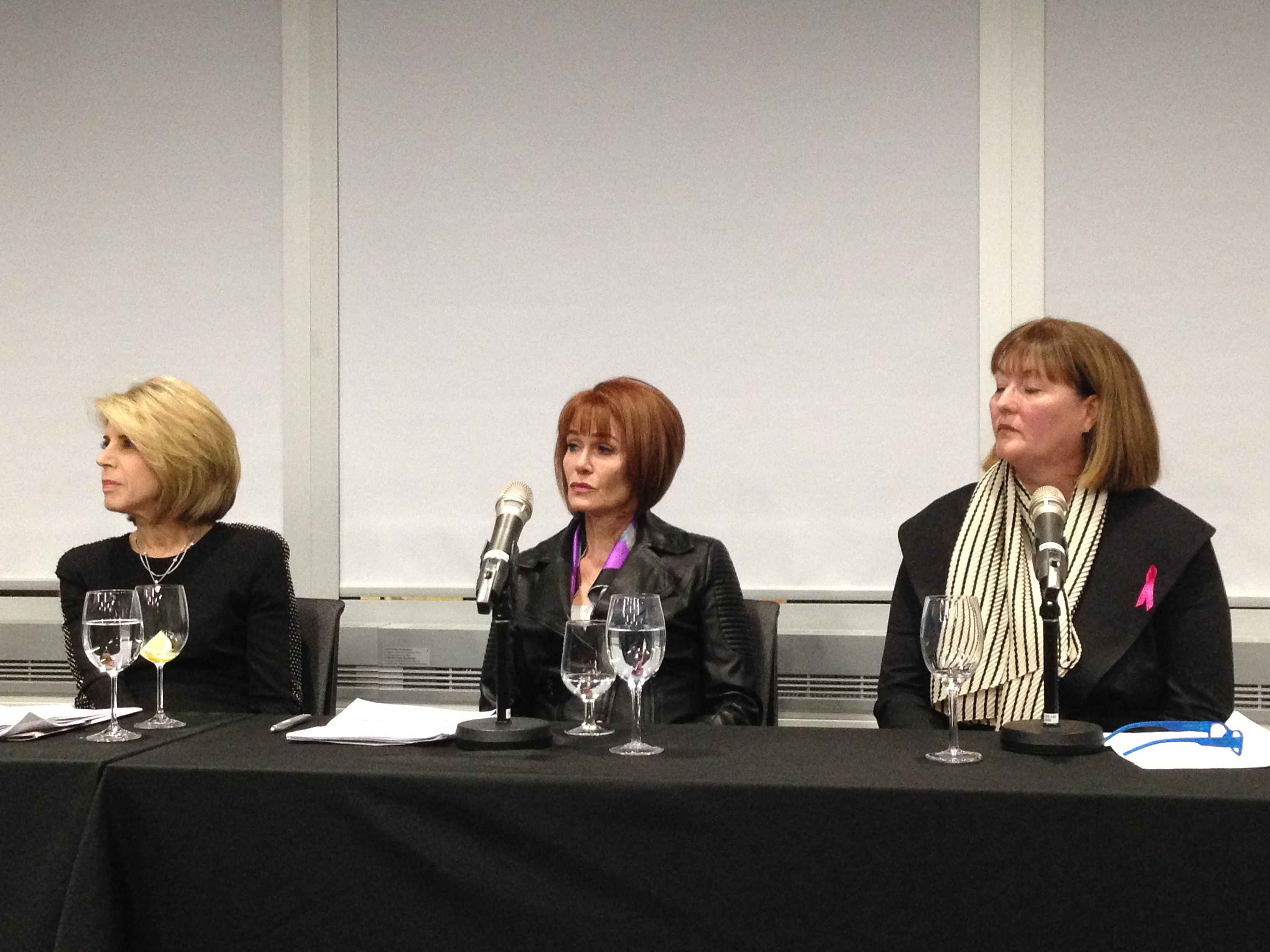Women’s health research discussed at panel hosted by the International Women’s Forum
Three notable women at the helm of major health organizations spoke about the most recent statistics, research and innovations concerning women’s health at a panel discussion hosted by the International Women’s Forum (IWF) at Concordia on Feb. 23.
According to Dana Ades-Landy, the CEO of the Heart and Stroke Foundation of Quebec, cardiovascular disease is the leading cause of premature death for women in Canada, and 78 per cent of women with cardiovascular disease are misdiagnosed. “Most of them are sent home with an antidepressant,” she said.
Although inaccurate information is prevalent on the internet, Ades-Landy said it is crucial that women trust medical professionals and other reliable sources, including the Heart and Stroke Foundation’s website. “Your doctor should be a sound source of information,” she said. One common misconception about heart disease is that it only affects older people, but “the face of heart disease and stroke today is changing,” Ades-Landy warned. “It’s killing young woman.”
While many causes of brain-related diseases are still unknown, Lynn Posluns, the president of the Women’s Brain Health Initiative, said researchers have found a definite link between hormonal issues and brain health. For example, the risk of dementia increases dramatically among women who have a hysterectomy and double oophorectomy prior to natural menopause, according to Posluns. Similarly, “you’re more likely to have Alzheimer’s disease if your mother has it than if your father does, but we do not know why,” she said.
Since there is no cure for Alzheimer’s disease yet, Posluns stressed the importance of prevention. “One third of all dementia cases are avoidable. Most people don’t realize that,” she said, adding that Alzheimer’s begins to cause brain damage 20 to 25 years before a person experiences visible symptoms. Among the proven methods of prevention is learning a new language, “which can add seven years of cognitive benefit to your brain,” Posluns said.
On the topic of breast cancer, Nathalie Tremblay, the CEO of the Quebec Breast Cancer Foundation, said new technologies, such as artificial intelligence, and large amounts of medical data have allowed researchers to tackle the disease in its earliest stage. “You can see biomarkers and mutations without having the very difficult biopsy and wasting time in trying newer therapies,” she explained.
In addition to widely known tips, such as eating healthy, exercising regularly, drinking moderately and not smoking, Tremblay said women can lower their risk of breast cancer by “knowing your genes [and] family history.” She nonetheless emphasized the importance of engaging in physical activities, specifying that they should be consistent rather than intensive: “Thirty minutes every day for five to six days, or one hour for three days, and moderate to slightly high [intensity].” Lastly, Tremblay’s message to young women was to be their own advocate. “You own your health, and you are responsible. Don’t wait for people to tell you that you have an [illness]. Empower yourself. Make changes to have a better life.”
Feature photo by Mina Mazumder




